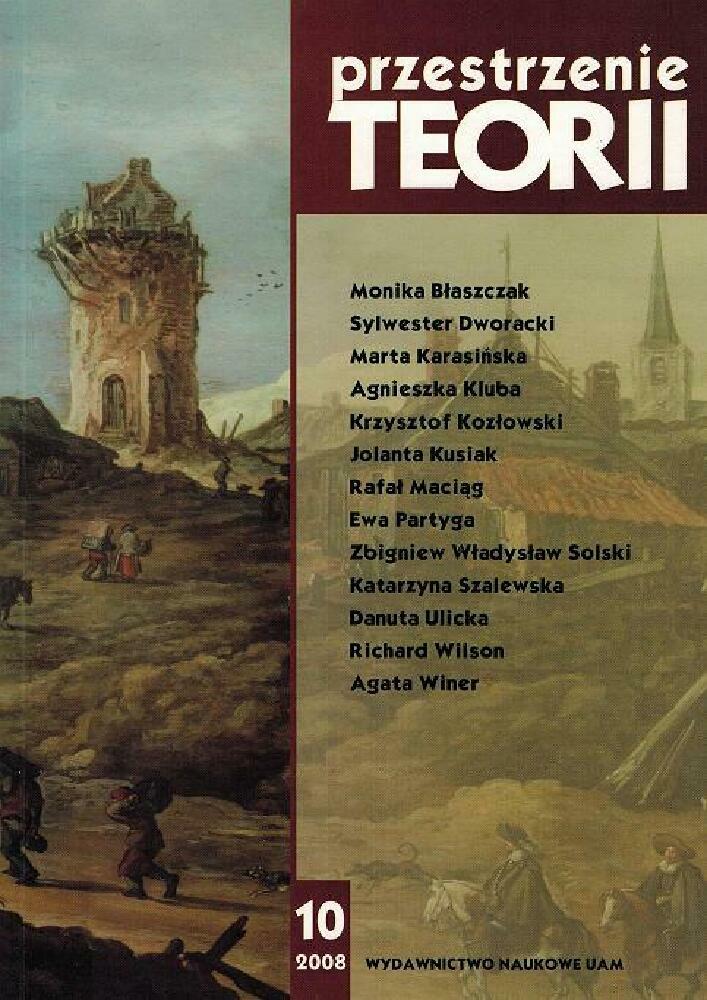Abstract
Part ONE. This dissertation is devoted to the inspiration of Maria Pawlikowska-Jasnorzewska by the philosophy of the East, which she got to know through Arthur Schopenhauer's writings. The first part contains a description of the manner in which the poet interpreted the inconsistency of the conception of the German philosopher who tried to combine in one all the elements of various religious and philosophical trends coming from India. We can look on Maria Pawlikowska-Jasnorzewska's works of the pre-World War II years as on a peculiar literary adaptation of these various ideas, and, to be more exact, as on an attempt to construct such a poetic world in which there might be a coordination between diverse currents determined by the Brahminian and the Buddhist ideas. In Pawlikowska-Jasnorzewska's early poems affirmation, paradox, (self/auto)irony and degradation of loftiness are concurrent, which are characteristic of the Buddhist attitude to the world and there is also avoidance of reflection of ethical nature so characteristic of Brahminism.
Part two. In the second part of the dissertation on the influence of Indian philosophy on Maria Pawlikowska-Jasnorzewska's views, these elements of her writings are analysed (such as miniaturisation, condensation, formal rigour, intellectualisation of lyricism), which reflected her way of thinking. The description also contains the next stage of writing activity of the author of Krystalizacje [Crystallisations] during which the poet gave up the affirmative amoralism, and in her poetry occurred a confrontation of the negativist assumptions of Brahminism with the Buddhist imperative of mercy. Along with the acceptance of the evaluative perspective in Pawlikowska-Jasnorzewska's poetic diction elements of gnostic rhetoric began to appear in which she followed Schopenhauer, and in her writings the process of "decay of the poetic form" began to be more and more visible, which was described by critics, and which led through the poetics of a sketch and fragment in her later prewar works to the notebook-like last recordings of the war period.
License
Authors
Authors of texts accepted for publication in Przestrzenie Teorii are required to complete, sign and return to the editor's office the Agreement for granting a royalty-free license to works with a commitment to grant a CC sub-license.
Under the agreement, the authors of texts published in Przestrzenie Teorii grant the Adam Mickiewicz University in Poznań a non-exclusive, royalty-free license and authorize the use of Attribution-NonCommercial-NoDerivatives 4.0 International (CC BY-NC-ND 4.0) Creative Commons sub-license.
The authors retain the right to continue the free disposal of the work.
Users
Interested Internet users are entitled to use works published in Przestrzenie Teorii since 2015, for non-commercial purposes only, under the following conditions:
- attribution - obligation to provide, together with the distributed work, information about the authorship, title, source (link to the original work, DOI) and the license itself.
- no derivatives - the work must be preserved in its original form, without the author's consent it is not possible to distribute the modified work, such as translations, publications, etc.
Copyrights are reserved for all texts published before 2015.
Miscellaneous
Adam Mickiewicz University in Poznań retains the right to magazines as a whole (layout, graphic form, title, cover design, logo etc.).
